Public Roundtable - The Provenance Question: Blind Spots in Itineraries of Museum Collections
On behalf of the International Institute for Asian Studies (IIAS), Humanities Across Borders (HAB) and Leiden Global, we would like to invite you to celebrate the conclusion of the In Situ Graduate School: Textile and Dyes as Transnational, Global Knowledge at the Public Event.
In the Roundtable, we will discuss the transnational circulation of objects and other repositories, apart from national museums and colonial archives.
What role does the notion of provenance play? Can memories, souvenirs, family albums, scrap books, letters, gifts, dowries, ceremonies, stores, designs and private/community collections provide us with lived histories of displacement and migration? When viewed from a people's perspective, do objects resist their location within nationalist framings? How does awareness of multidimensional narratives help in our understanding of objects?
The ISGS Roundtable will be joined by academics from various backgrounds.
Moderator
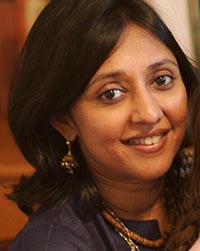
Aarti Kawlra – Academic Director of the Humanities Across Border (HAB) at the International Institute for Asian Studies Aarti Kawlra is an anthropologist and Academic Director of the Humanities Across Borders (HAB) program at the International Institute of Asian Studies in Leiden, Netherlands. HAB facilitates transdisciplinary and trans-regional collaborations to build bridges between the 'text' and 'context' of knowledge making and transmission in higher education. Her research work interrogates disciplinary and popular discourses and assumptions surrounding culture, heritage, education, nation and development. Her publications include “Recipes for Re-enchantment: Natural Dyes and Dyeing in India” in Cloth and India: Towards Recent Histories 1947-2015, Marg (2016), the monograph We Who Wove with Lotus Thread: Summoning Community in South India, Orient Blackswan (2018), and “Sari-Kimono and the Making of a Transnational Craftscape” in S. Narasimhan edited, India-Japan Narratives: Lesser Known Historical and Cultural Interactions Mosai, 2021. |
Discussants
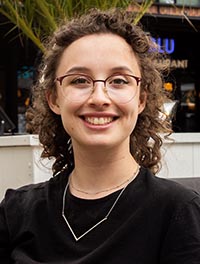
AJ Salter – MA Graduate, Art and Culture - Museum and Collections, Leiden University AJ Salter is a Canadian currently living in the Netherlands. She completed a Bachelor of Fine Arts with a minor in Art History at the University of British Columbia, where she focused on textiles and sustainability through the medium of photography. AJ moved to the Netherlands to pursue personal connections and a master's at Leiden University, majoring in Museums and Collections. As a lover of textiles, she had the pleasure of following an internship during her studies at the Textile Research Centre in Leiden. She is continuing her volunteer research work after graduation. As an international in the Netherlands, she appreciates the interdisciplinary work of the TRC and the diverse topics that textiles can cover. AJ hopes to continue her research about museum collections and textiles in the Netherlands and maintain ties with Leiden University and the TRC. |
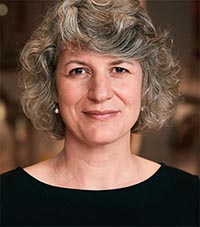
Annette Schmidt – Curator Africa, Research Centre for Material Culture and Museum Volkenkunde Annette Schmidt (1967) is Curator Africa. She recently received an NWO grant for provenance research on the West Central-African collection, titled Roofkunst of handelswaar? | Theft or merchandise?. Her scholarly interest lies in the materiality and collections histories of Dutch Congo collections; the illicit trade in cultural heritage; and, the materiality of tourism. |
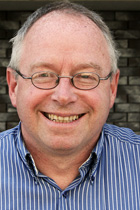
Jos Damen – Head Library department, African Studies Centre Leiden Jos Damen is Head of the Library and ICT Department at the ASCL and is in charge of policy, planning and operations. He is also responsible for ICT support services, including the website. He is a member of the ASCL's Executive Board and vice-director of the ASCL. He has repeatedly stressed the importance of diversity in libraries, such as in this LSE blog. The African Studies Centre Leiden is the only multidisciplinary academic knowledge institute in the Netherlands devoted entirely to the study of Africa. It has an excellent library that is open to the general public. The ASCL is an interfaculty institute of Leiden University. |
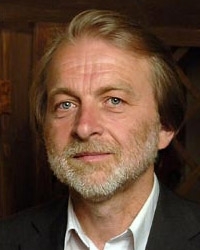
Pieter ter Keurs – Professor of Museums, Collections and Society, Leiden University, LeidenGlobal and LDE Centre for Global Heritage and Development Pieter ter Keurs (1956) is professor of Museums, Collections and Society at the faculties of Archaeology and Humanities. Ter Keurs is also Academic Director of the LDE Centre for Global Heritage and Development. He specializes in critical museums studies and the study of material culture. He wants to stimulate the use of academic and museum collections in scholarly research and scientific eduation. |
ISGS Convenors
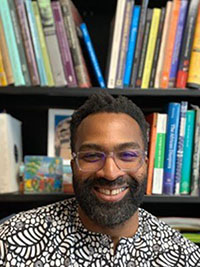
Jody Benjamin – Assistant Professor of History at the University of California, Riverside Jody Benjamin's research focuses the social and cultural history of West Africa during the 18th and 19th centuries—particularly histories of material culture, consumption, and fashion. He analyzes western Africa’s role in the rise of global cotton, thus charting the region’s integration into a global economy dominated by capitalist networks and colonial logics. Trained as a historian in the Department of African and African American Studies at Harvard, Dr. Benjamin’s work has been supported by the National Endowment for the Humanities (NEH), the University of California Regents, University of California Humanities Research Initiative (UCHRI), the Hellman Fellows Fund, and the John Carter Brown Library at Brown University, where he was the Ruth and Lincoln Ekstrom Fellow. He is currently the lead project investigator for a 2022-2023 Mellon Sawyer Seminar on archival practices in African and African Diaspora Studies. Dr. Benjamin is currently completing a book manuscript, “The Texture of Change: Dress, Pluralism and History in Western Africa during an Atlantic Age,” which is scheduled for publication with Ohio University Press in 2022. |
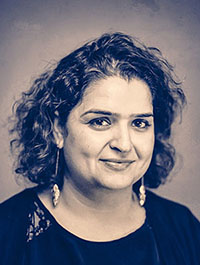
Neelam Raina – Associate Professor of Design and Development at Middlesex University Neelam Raina has led the Security, Conflict and Displacement portfolio for research as the Challenge Leader for the Global Challenges Research Fund (2018-2021) at United Kingdom Research and Innovation Neelam’s research interests include conflict, security, peace building, material cultures, gender, and livelihood generation. She works mainly in South Asia with a focus on Kashmir where she has conducted research over the last two decades both in Indian and Pakistan administered Kashmir, Sri Lanka and Afghanistan. The Women, Peace and Security Agenda is key to Neelam’s work. Her research seeks to foreground voices of vulnerable and marginalised women within fragile, conflict affected areas. |
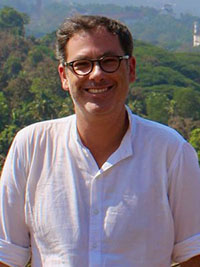
Pedro Pombo – Researcher at the Centre for Research on Slavery and Indentured Labour, University of Mauritius Pedro Pombo was Assistant Professor at Goa University until October 2021. Presently is Associated Researcher at the Centre for Research on Slavery and Indentured Labour, University of Mauritius, and associated with the Regions2050 project, WiSER, Wits University, and the Research Chair on Ocean Cultures and Heritage, Nelson Mandela University, both in South Africa. He received his PhD in Anthropology from ISCTE- IUL, Lisbon (2015) with an ethnographic exploration on space, belonging and local history in Southern Mozambique. Earlier, Pedro graduated in Decorative Arts and Design and developing research on Indo-Portuguese architecture. He researches traces of Afro-Asian circulations through aesthetic and anthropological approaches, focusing on archival and material traces, heritages, landscapes and memories in the Indian Ocean. He is co-author of the documentary “The Club” (2021), on the Goan diaspora in Tanzania, with Nalini Elvino de Sousa, funded by the RTP-Portuguese Television. |
The ISGS Public Event Programme:
| Time | Programme | Location |
|---|---|---|
| 13.30 | Opening Speech | Tuinzaal, Grand café de Burcht. |
| 14.00 | Roundtable: The Provenance Question: Blind spots in Itineraries of Museum Collections + Q&A |
|
| 16.30 | Closing Drinks | |
Our understanding of textile and dye crafts, both at the local and global levels, is invariably colored by colonial, national and post-war UN approaches to ‘development and rehabilitation’. More recently, the neo-liberal wave of institutionalizing art and culture through the frames of ‘heritage’ and/or ‘creative economy’ has begun to shape our ideas and sentiments about handmade textiles, clothing and dyes.
The LeidenGlobal-HAB-IIAS In Situ Graduate School (ISGS) interrogates prevailing, dominant discourses through other, less visible, and marginalized vantage points, whilst focusing on three sub-themes:
- Circulations of textiles and dyes along less visible cartographies
- Textile and dyes as sites of precarity and meaning
- Testimonies of past and present subjectivities of cloth, clothing and colour
This ISGS includes international participants from Arts, Design, Social Sciences and Humanities graduate programmes (doctoral, including doctorate practice-based research, and research master's) and early-career professionals.
Throughout the ISGS programme, the participants will visit various cultural institutions, where the topics of textile and dyes are heavily featured, such as Textile Research Centre Leiden, Museum Volkenkunde, Museum de Lakenhal, Textielmuseum Tilburg etc.